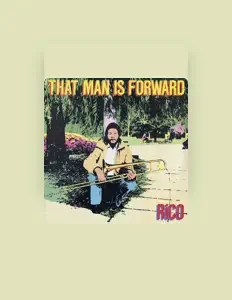
Worldwide
Orchestre Jazira
Orchestre Jazira's Popular Music Videos
About Orchestre Jazira

Born
1980
Genre
Worldwide
Of the several dozen bands that emerged in the UK during that country’s sizeable growth of interest in African music during the early and mid-80s, Jazira were the least roots orientated. Formed in 1980, they had an almost continuously shifting line-up (usually 10-piece, sometimes even larger) during the seven years of their existence, although some stylistic continuity was provided by a core of more-or-less permanent members including founder vocalists Isaac Tagoe and Martin Nii-Moi, founder guitarists Ben Mandelson and Folo Graff, and a three-piece horn section. In part, the band’s stylistic eclecticism was a result of the large number of nationalities, African and European, represented amongst the personnel, with no single national grouping overwhelming the others. In part it was also a conscious effort by the founding members to create a pan-African, even global, sound - incorporating highlife, soukous, rock, jazz and practically anything else that took their fancy. After making unsuccessful approaches to a number of major labels, Jazira signed a singles contract with the independent Earthworks label in 1982, releasing the critically acclaimed but commercially unsuccessful ‘Love’ towards the end of the year.
By 1983, the band had left Earthworks and had signed a three-year recording contract with Beggars Banquet Records. They drafted in London-based Sierra Leonean producer Akie Deen, who had achieved widespread African and Caribbean success in the late 70s with his ‘discolypso’ sound. The first fruit of the new partnership, ‘Sakabo’, mixed by dub maestro Dennis Bovell, combined highlife, soca, soukous and reggae to glorious effect. True to form, Jazira shifted direction yet again with Nomadic Activities in 1984. The album was consciously and defiantly at odds with what both the UK record business and its public then expected of an ‘African’ band - that is a simple, happy, all-night party sound. The approach was just too moody, complex and cosmopolitan to fit the bill. In a desperate attempt to gain radio play, Beggars Banquet persuaded Jazira to release one of the album’s least demanding tracks, ‘Happy Day’, as a single - and when that failed, let the band’s contract expire. Over the next three years, Jazira slowly unwound, as members left to pursue solo careers or join other bands. Graff was one of the first to leave, followed by Mandelson and Nii-Moi, then saxophonists Jane Shorter and Sophie Hellborg, who moved to Paris to join Mory Kanté’s band. Tagoe continued to lead a much-reduced Jazira around the UK club circuit until the end of 1987, when the group finally broke up.
Similar to: Orchestre Jazira
Discover more music and artists similar to Orchestre Jazira, like African Culture, Barrio Latino, Mac Tonoh












